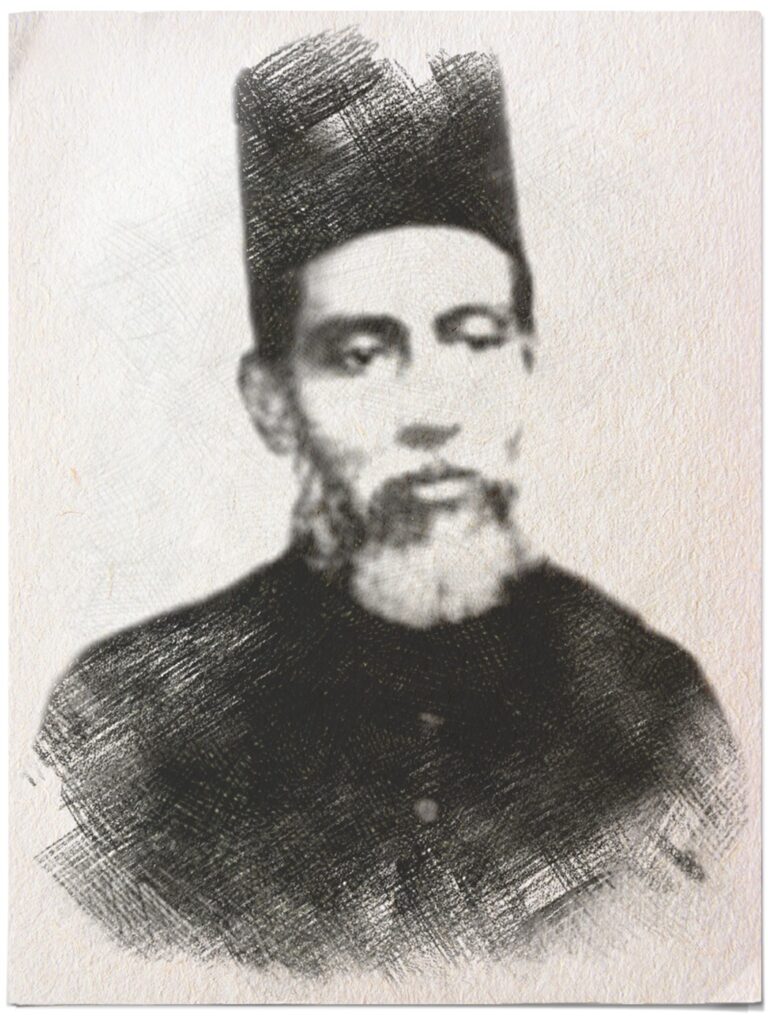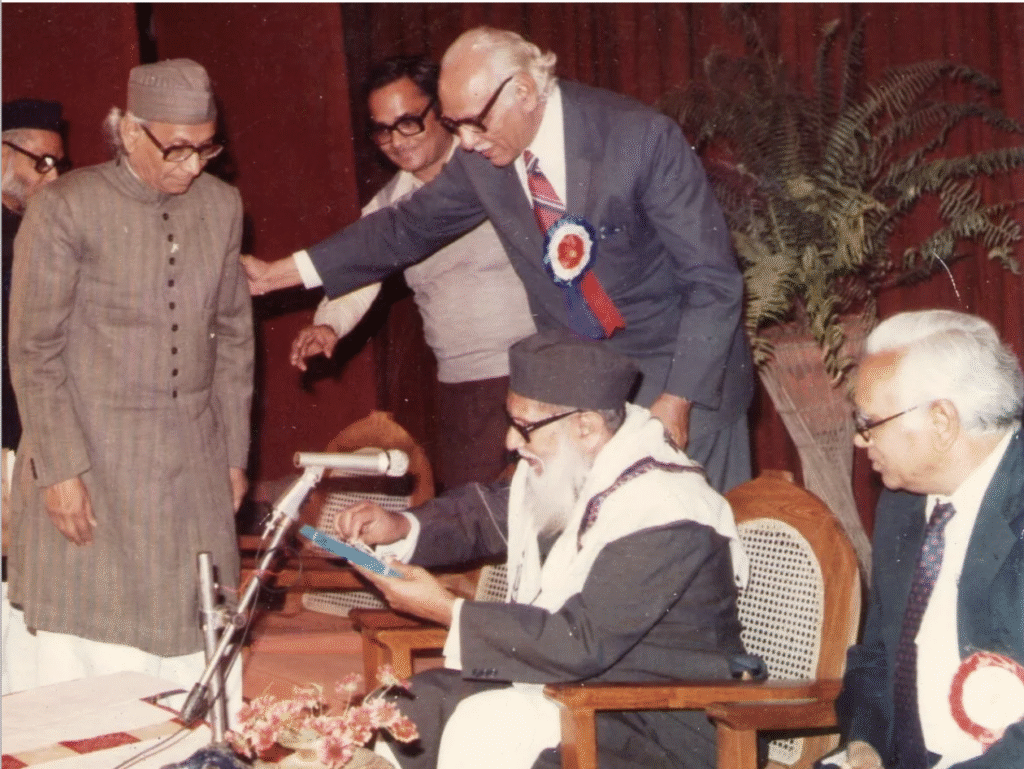During my travels, I found myself immersed in Imam Al-Ghazali’s Iḥyāʾ Ulūm al-Dīn, and as I reflected on his profound insights into the barriers that prevent us from truly understanding the Qurʾān, I was struck by how these obstacles are not merely intellectual but deeply spiritual. Al-Ghazali identifies two primary barriers that hinder our comprehension: 1) the preoccupation with pronunciation, and 2) the spiritual obstacles caused by sin, arrogance, and attachment to worldly desires. These barriers not only distort our intellectual engagement with the Qurʾān but also prevent us from internalizing its deeper meanings.
In addition to these barriers, it is essential to remember that the Qurʾān is not just a book of knowledge, but a living communication from Allāh (ﷻ) to His servant, as Muḥammad ibn Ka’b al-Quraẓī wisely stated: “Whoever receives the Qurʾān has been addressed directly by Allāh (ﷻ).” This profound insight reminds us that the Qurʾān is more than a text to be studied; it is a divine message that demands reflection, contemplation, and implementation in our lives. It is a message that calls for both intellectual engagement and spiritual transformation.
In this article, I will explore Al-Ghazali’s reflections on these two major barriers to understanding the Qurʾān and offer practical steps to help us overcome them. By addressing the barriers of preoccupation with pronunciation and the spiritual impurities of sin and materialism, we can unlock the full transformative power of the Qurʾān.
1. Preoccupation with Pronunciation
The first barrier Al-Ghazali identifies is the preoccupation with pronunciation, which is a concern that many of us face when engaging with the Qurʾān. The pursuit of perfecting one’s recitation is both commendable and important, but Al-Ghazali warns that this focus on phonetic accuracy can easily become an obstacle to true understanding. While we must strive to pronounce the Qurʾān correctly, the pursuit of this ideal can become so consuming that it detracts from the more essential goal of engaging with the deeper meanings of the words.
Al-Ghazali explains that this obsession with perfect pronunciation leads to a disconnection between the reciter and the message of the Qurʾān. Instead of focusing on the spiritual and intellectual guidance the text offers, the reciter becomes obsessed with the mechanics of recitation—worrying about the purity of their articulation or the perfection of their tajwīd (pronunciation rules). This preoccupation turns the recitation into a mechanical exercise, and the heart, which should be engaged in reflection and spiritual absorption, becomes detached from the divine message.
One of the dangers of this barrier is that it can lead to a cycle of doubt and anxiety. The reciter might continuously worry if they have pronounced a letter correctly, thereby diminishing the quality of their engagement with the Qurʾān’s message. Al-Ghazali asserts that the purpose of reciting the Qurʾān is not to merely enunciate its words correctly but to allow the words to resonate within us, to reflect on their meanings, and to allow them to transform us. The Qurʾān is a means of spiritual connection, not just a set of words to be repeated.
This barrier becomes particularly insidious when recitation is done without consideration for the meanings of the words. For example, someone may recite the Qurʾān fluently and beautifully but fail to reflect on its meanings, its guidance, and how it applies to their own life. The process becomes ritualistic rather than transformative. Al-Ghazali stresses that the Qurʾān is not merely a text to be recited; it is a living communication from Allāh (ﷻ), meant to guide us in both our thoughts and actions. By focusing solely on pronunciation, the spiritual essence of the Qurʾān can be overshadowed.
Practical Steps to Overcome This Barrier:
To overcome this barrier, Al-Ghazali advises us to balance our attention to pronunciation with a conscious focus on the meaning and message of the Qurʾān. We should allow the words to penetrate our hearts and minds, not just our vocal cords. Reflecting on the verses during recitation, and integrating their meanings into our lives, will lead to deeper spiritual insights. The recitation should be a heartfelt process, where the reciter actively listens to the message and internalizes it, rather than merely performing it outwardly.
One practical approach to overcoming this barrier is to recite the Qurʾān with a specific intention to connect with its meanings rather than focusing on perfection in pronunciation alone. Starting with a smaller portion, we can contemplate the meanings of the verses, allowing them to guide us in our daily lives. It is this reflection, combined with sincere recitation, that allows us to truly benefit from the Qurʾān’s transformative power.
Additionally, regular practice of reciting short portions with contemplation can help improve both understanding and pronunciation. Avoiding the rush to finish a certain portion, and instead reflecting on just a few verses, can be far more beneficial than reciting large sections mechanically. We must also cultivate an attitude of humility, reminding ourselves that our goal is not to achieve perfection in pronunciation but to connect with Allāh’s (ﷻ) message and allow it to guide our actions.
2. Persistent Sin, Arrogance, and Attachment to Worldly Desires
The second barrier Al-Ghazali addresses is the spiritual obstruction caused by persistent sin, arrogance, and attachment to worldly desires. These negative traits cloud the heart and prevent the Qurʾān from making the impact it is meant to have. Al-Ghazali likens the heart to a mirror that reflects the divine light of the Qurʾān. However, when the heart is tarnished by sin, arrogance, or materialism, it cannot reflect the Qurʾān’s message clearly. The more we cling to worldly pleasures and egotism, the less capable we are of truly understanding the Qurʾān’s guidance.
Al-Ghazali explains that these spiritual impurities act as a veil that blocks the heart from receiving the light of the Qurʾān. When the heart is clouded by sin, it is unable to perceive the divine wisdom that the Qurʾān contains. The Qurʾān is meant to guide us towards righteousness and remembrance of Allāh (ﷻ), but when we are consumed by materialism or pride, we remain distant from its message.
Al-Ghazali teaches that the Qurʾān’s true meanings can only be accessed when the heart is purified. The more we are attached to worldly things—whether it be wealth, status, or the fleeting pleasures of life—the more difficult it becomes to absorb the Qurʾān’s guidance. These attachments act like rust on the mirror of the heart, obscuring its ability to reflect the divine light. True understanding requires the heart to be clean and humble, free from the distractions that hinder spiritual perception.
Al-Ghazali also explains that the arrogance that arises from material success or social standing can prevent us from receiving the Qurʾān’s guidance. If we believe that we have enough worldly knowledge or wealth, we may feel that we do not need the guidance of the Qurʾān, thus blocking its light from reaching our hearts. The more we are tied to our ego and worldly desires, the less able we are to open ourselves to the wisdom of Allāh (ﷻ).
Practical Steps to Overcome This Barrier:
To overcome this barrier, Al-Ghazali emphasizes the need for repentance (tawbah) and the purification of the heart. Only by turning to Allāh (ﷻ) in sincerity and seeking forgiveness can we cleanse the heart and prepare it to receive the full light of the Qurʾān. This process of spiritual purification allows the meanings of the Qurʾān to penetrate deeply and transform the heart.
One of the most effective steps to overcome this barrier is to make regular repentance a part of our routine, acknowledging our sins and seeking Allāh’s (ﷻ) forgiveness. Focusing on a balanced life—one that is not consumed by materialism, arrogance, or worldly desires—will open the heart to receiving divine guidance. Regular acts of worship, reflection, and prayer, along with efforts to live a life that is conscious of the Hereafter, are essential for purifying the heart and facilitating a deeper understanding of the Qurʾān.
A daily practice of self-reflection and self-assessment will help us identify where our attachments to worldly things may be hindering our spiritual growth. Seeking contentment with what we have, rather than striving for constant accumulation, and focusing on spiritual practices such as dhikr (remembrance of Allāh ﷻ) and acts of charity, will gradually purify our hearts and help us see the Qurʾān as a living guide.
Conclusion
Imam Al-Ghazali’s reflections on the barriers to understanding the Qurʾān remind us that true knowledge is not merely intellectual but also spiritual. The barriers he identifies—preoccupation with pronunciation and spiritual impurity—prevent us from fully experiencing the Qurʾān’s transformative power. These obstacles hinder not only our intellectual understanding but also our spiritual engagement with Allāh’s (ﷻ) message.
As I reflected on Al-Ghazali’s insights, I realized how deeply these barriers resonate in our contemporary world, which is filled with distractions, materialism, and a focus on outward perfection. To overcome these barriers, we must approach the Qurʾān with a sincere and open heart, free from distractions and preconceived notions. By reflecting on the meanings of the Qurʾān during recitation, purifying our hearts through repentance, and focusing on the divine message rather than just its form, we can unlock the deeper layers of wisdom it contains.
This journey is a lifelong one, requiring patience, humility, and dedication—but through it, we can experience the Qurʾān’s true transformative power in our lives. The Qurʾān is not just a book of knowledge; it is a divine message from Allāh (ﷻ) that we are called to reflect upon, contemplate, and implement in every aspect of our lives. Only through this deeper, more sincere engagement can we truly experience the light and wisdom that the Qurʾān has to offer. The Qurʾān calls us not just to read and recite, but to reflect, transform, and act in accordance with its teachings, allowing it to guide us toward spiritual growth and closeness to Allāh (ﷻ).
May Allāh purify our hearts, illuminate our understanding, and grant us the ability to reflect upon His words. May He protect us from distractions and arrogance, and guide us to act in accordance with the teachings of the Qurʾān. Ameen.



